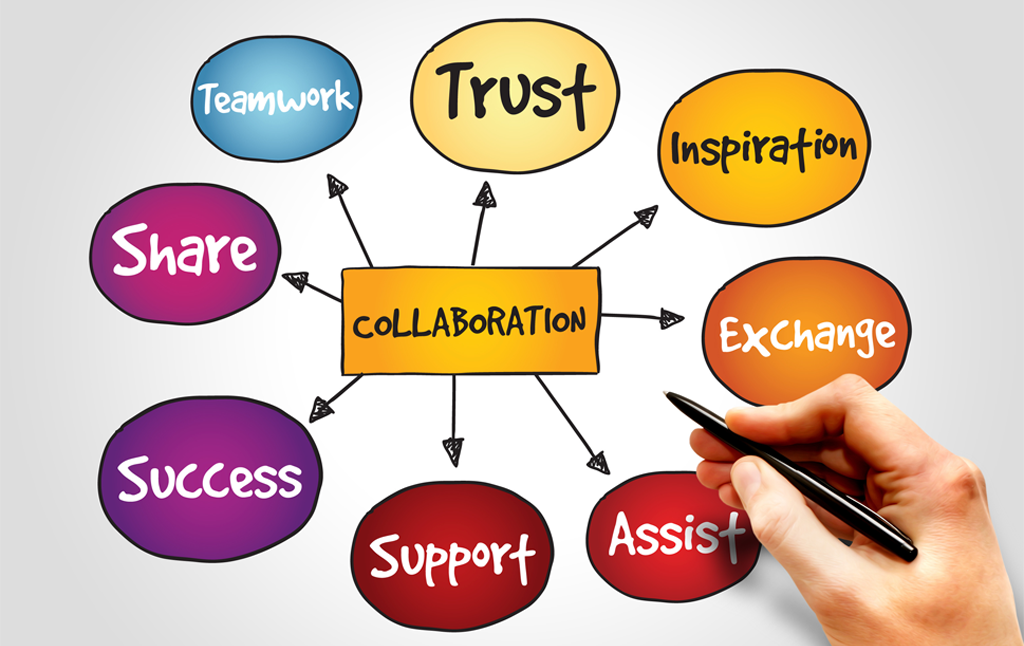The Power of Curiosity: A Leader’s Guide to Building Trust and Collaboration


The Overlooked Tool: How Curiosity Can Drive Performance and Success
Curiosity is a powerful leadership tool that is often overlooked by professionals. When leaders approach relationships with curiosity, they create a more trusting and collaborative environment.
Curiosity involves a range of skills, including Comradery, Understanding, Reflective Listening, Inclusivity, Open-mindedness, Utilization of others, and Summarization. By cultivating these skills, leaders can build stronger relationships with their team members, foster a culture of innovation and growth, and improve overall performance.
Curiosity is a key driver of success in today’s fast-paced and ever-changing business environment.
Comradery
Comradery creates environments of mutual trust and respect. Approaching all interactions with coworkers and supervisors with good cheer creates an environment of trust and mutual respect. Friendly energy levels the playing field, allowing leaders to build stronger relationships with team members based on shared experiences, values, and goals. How does one foster a spirit of comradery? By being cordial, compassionate, and encouraging. This demonstrates to team members their welfare, and are committed to viewpoints, their success matters. This method creates a more optimistic and efficient work culture where everyone feels appreciated and driven to collaborate.
Understanding
Leaders who approach each communication with an empathetic demeanor can establish stronger relationships with their team members. By prioritizing understanding, leaders show that they value their colleagues’ needs and viewpoints. Comprehension necessitates attentive listening, compassion, and a readiness to clarify misunderstandings. Leaders who cultivate these abilities can improve their communication skills and build confidence with their team members. By demonstrating compassion, leaders can alleviate conflicts, resolve problems more proficiently, and enhance morale. Understanding is a vital driver of success in any organization, as it enables leaders to establish a more affirmative and efficient work environment where everyone feels recognized and valued.
Reflective Listening
Reflective listening is a potent communication skill to exhibit curiosity and build trust with their team members. To demonstrate reflective listening summarizing what the other person says and asking clarifying questions. By engaging in reflective listening, leaders can show their team members they value their viewpoints and are truly invested. This helps establish confidence and encourages a more cooperative organizational culture. In addition, leaders who actively use reflective listening can enhance their people skills, show compassion, and settle conflicts proficiently. By displaying their curiosity and devotion to perceiving others, leaders can create an optimistic and efficient work culture where everyone feels acknowledged and appreciated.
Inclusivity
Inclusivity is a crucial element of effective leadership, as it involves valuing diversity and creating an environment where everyone feels heard and respected. Inclusive leaders recognize that every team member has unique strengths and perspectives to contribute, and they actively seek out and value these differences. By embracing inclusivity, leaders can build stronger teams, improve innovation, and enhance productivity. Inclusive leaders can create a work environment where everyone feels valued and motivated to contribute to the team’s success. They can foster a culture of collaboration and mutual respect, which can lead to better decision-making, higher employee engagement, and improved business outcomes. Inclusivity is not only the right thing to do, but it is also a key driver of success in today’s diverse and dynamic workplace.
Open-mindedness
Open-mindedness, an essential skill for effective leadership, is being responsive to new concepts, input, and outlooks. Open-minded individuals are willing to reconsider their preconceived notions, embrace progressive change, and evolve from their missteps. By developing an open-minded organizational culture, leaders can create an atmosphere of ongoing advancements, originality, and expansion. This stimulates team members to share their insights and viewpoints, which can lead to new insights and discerning judgment. This method allows a culture of innovative trial and error to blossom, leading to innovation and enhanced performance. Open-mindedness is the primary catalyst of achievement in today’s quick-moving and constantly evolving commercial environment, as it permits leaders to adapt to new prospects.
Utilization of Others
Leaders who value the viewpoints of multiple expert sources can benefit from this well-rounded approach. By soliciting opinions from colleagues and shareholders, leaders can make educated judgments and gain profound insight into complex matters. Utilizing others can also help leaders uncover shortcomings, challenge their preconceived ideas, and generate innovative solutions. In addition, leaders who value others’ contributions can establish confidence and encourage cooperation within their teams. When team members feel that their thoughts and viewpoints are appreciated, they are more likely to be involved and committed to achieving the team’s goals. Ultimately, utilizing the skillsets of others is a vital executive skill that can lead to better decerning judgment, increased positive performance, and more favorable results for everyone involved.
To learn more about reflective listening download my FREE E-book: https://cbkadvising.com/coaching-downloads/.
Summarization
Summarization plays a pivotal responsibility in successful communication and cooperation. By summarizing what was said, leaders can guarantee that everyone agrees and clarify any ambiguity. This measure helps to combine facts, extract essential points, and provide a concise synopsis of the discussion. Leaders who take the ambition to summarize display curiosity and commitment to empathy. They show they appreciate active listening and are dedicated to fostering clear and encouraging dialogue within their teams. Additionally, summarization helps to underscore essential facts, boost recall, and promote harmony among team members. Utilizing this crucial skill, leaders can strengthen cooperation, develop credibility, facilitate more productivity, and promote efficient determination-making.
Curiosity Builds Stronger Relationships and Drives Innovation
Curiosity is an influential attribute for leaders to establish confidence, partnership, and accomplishment within their organizations. By practicing comradery, understanding, reflective listening, inclusivity, open-mindedness, utilization of others, and summarization, leaders can create an atmosphere of curiosity that propels inventive expansion. When leaders approach relationships with curiosity, they create a culture of reciprocal respect and collaborative knowledge. They embody their commitment to understanding others and actively exploring fresh viewpoints and concepts. This attitude can lead to healthier connections, enhanced communication, and efficient decision-making. By hosting a culture of curiosity, leaders can empower their team members to think out of the box, reconsider preconceived concepts, and adopt progressive change. This can lead to pioneering advancements, upgraded productivity, and a more supportive and constructive work atmosphere.
Finally, curiosity is a key ingredient of success in today’s demanding business atmosphere, and leaders who embrace this vital skill are more likely to achieve success.

